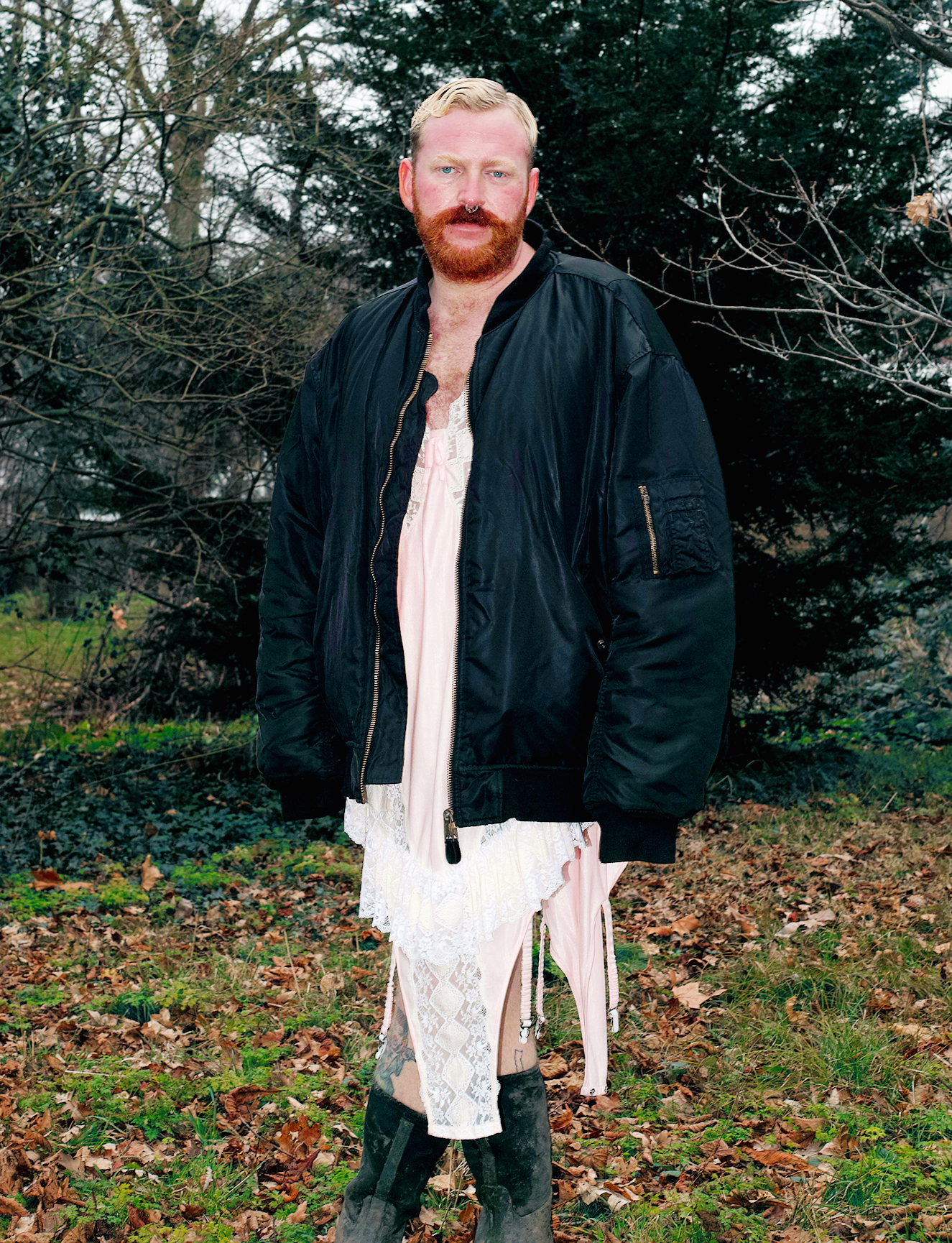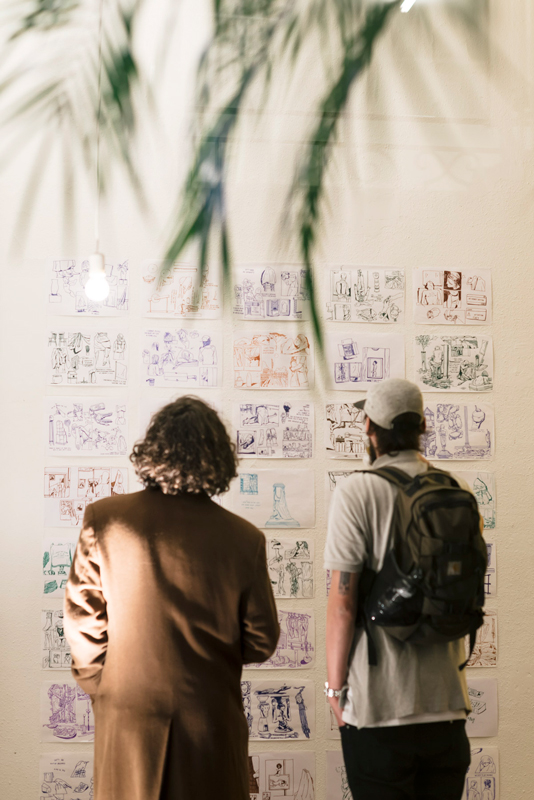The Animation Director
A 34 year old male freelance animation director, who’s spent the past decade working in both the music video and advertising industries.
How do you set your day rate, or the rate you get paid per job?
I get a director’s fee which is a percentage of the overall budget of each job. It is an industry standard rate.
What’s the most you’ve been paid for a job, and the least?
This massively depends on the job, who the brand is etc, and whether the work is commercial or promo, but as a guide I’d say the max is £75k, and the min £1k.
The more creative freedom you have, the less you get paid
How do you find the balance between money jobs and editorial work? Do you feel there is a clear difference?
I find the balance comes naturally with whatever project comes through the door really, if you can deal with whatever is thrown at you. For me it’s very organic, I don’t really know what’s coming next. It could be a huge big brand commercial or a much lower budget broadcast promo or music video. If I’ve just done a huge well paid commercial I am more likely to then take a lesser paid job that is more creatively fulfilling. In general, in my experience, the more creative freedom you have, the less you get paid.
What difficulties have you had when it comes to getting paid?
In terms of getting paid on time and chasing invoices, there is usually a 30-day payment period. I get 50% upfront when the job is confirmed and then 50% on completion. Usually the invoices get paid swiftly, but there are times I have had to chase invoices that are 6 months overdue. I think mostly this comes down to something as simple as an accounts issue from either the production company or agency.
Do you feel there is transparency around pay in your field? Are you aware of what your peers make or what the standard is? Or do you feel it’s pretty obscure?
Even though I get paid an industry standard and I believe my peers do too, it’s still unclear as to what exactly each person gets.
I have had to fight to get my full percentage before. It took me years to know that I could question why I wasn’t getting the full amount. It was also the courage to ask, having confidence in my value. I almost feel like I should be grateful for any amount offered, even if it’s less than I should get, but you deserve what is set out and sometimes have to push for it. This is a bit tricky to work out and I have spoken to other directors who also struggle with it.
What is the one piece of advice you’d give when it comes to getting paid?
Don’t undervalue yourself, have confidence in your abilities and stay strong and push to get what you deserve.
The Digital Designer
A 34 year old female freelance digital designer, of British Indian heritage, who lives in London. She has worked for fashion brands, creative agencies and media outlets. She left a long-term role last month to work on multiple freelance projects with different clients.
I’ve only ever asked for a promotion once
How do you set your day rate?
£350 – £400 per day is my standard currently. At a push, £300 per day is the lowest I will accept if I’m desperate, it’s a really amazing project or if it’s for a charity. A male freelance friend of mine (who always tells me I’m charging too little!) charges £450 minimum with no budget, which is pretty interesting.
What’s the most you’ve been paid for a job, and the least?
In permanent roles I’ve made as little as £12,000 as a junior art worker (mad right!!) and as much as £53,000 as a senior digital designer.
In terms of freelance rates, as little as £150 per day, as a junior retoucher, and £400 per day, as a senior digital designer.
Do you think your identity helps, or hinders you, when it comes to getting paid?
This is an interesting one for me. My last two long-term jobs both had diversity and inclusion schemes running, so I would say my identity (race & gender) definitely assisted me in getting those roles.
But while this means it maybe has helped me to get paid, I can’t say this has been positive for my confidence. The feeling of knowing you’re somewhere because you tick boxes rather than for your skillset alone isn’t necessarily encouraging, whether this is true or not.
Do you feel there is transparency around pay in your field? Are you aware of what your peers make or what the standard is? Or do you feel it’s pretty obscure?
In the past I know male colleagues of mine were quicker to receive promotions and pay rises, but I would always put that down to a) them being ballsy enough to ask or b) being more experienced.
I’ve only ever asked for a promotion once, which was after three years at Topshop, but I didn’t get it so I left for a higher paid job. When I was at Wunderman Thompson for two years, which at the time was a very male dominated agency, I felt out of my depth and didn’t think I qualified for a pay rise or promotion, so I just never asked. In hindsight I totally think I could have.
What is the one piece of advice you’d give when it comes to getting paid?
Have the confidence. Know your worth. And know your rights!
Know your worth. And know your rights!
The Copywriter
A 27 year old female London-based copywriter and writer, who has worked full-time as an editorial and social assistant, and freelance as a journalist and writer for the past three years.
How do you set your day rate?
Always propose the top range for big brands, or clients in industries like tech. Don’t undervalue yourself and don’t barter when setting an initial rate. Also, it is ok to renegotiate rates with clients you’ve worked with before, if the brief changes or if the expertise you bring to the table has levelled up significantly.
What’s the most you’ve been paid for a job, and the least?
The most I’ve been paid for a job has been a £300 day rate. This was for a Google project through an advertising agency. The least I’ve been paid in my current field was a £120 day rate. As a freelance journalist/writer the lowest I got paid for a piece was £80 (not counting pieces I’ve written for free).
Don’t barter when setting an initial rate
How do you find the balance between money jobs and editorial work? Do you feel there is a clear difference?
There is definitely a clear difference. I have found that working on low paying editorial work for publications gets draining and there’s not enough incentive to put the time and effort in, so instead of publishing in magazines or on platforms I now like to spend my time working on personal projects with friends as I find it is more rewarding. That being said, there could certainly be a pull to do non or low paying editorial projects eg. getting to work with a great editor or interviewing someone whose work I admire.
Do you think your identity helps, or hinders you, when it comes to getting paid?
I would say neither, however if I wanted to, I could certainly play up my identity (female, eastern European) as an angle to land certain kinds of jobs. Probably more relevant in editorial work.
You are essential to the company and client
Do you feel there is transparency around pay in your field? Are you aware of what your peers make or what the standard is? Or do you feel it’s pretty obscure?
I’d say there’s transparency around pay among my friends and peer group, which I try to learn from and apply when communicating about my own pay and financial situation. There are shifts and initiatives in the wider industry, but this is more often among writers/creatives who are on similar levels – less transparency between senior creatives, how they make most of their money, how much does a title or position that has prestige attached to it actually pay, etc.
What is the one piece of advice you’d give when it comes to getting paid?
Think of your skills as assets rather than random bits of experience you’ve picked up along the way. You are essential to the company and client for completing the project and making money and therefore your expertise should be duly compensated.
So To Wrap Up
Pay issues aren’t problems that it’s up to any one creative to fix, but if there’s one common theme running through our responses it’s transparency, and knowing your worth. Openness around money can seem impossible. But taking the step to have frank conversations with peers, and being candid in turn, can help shine a light on exactly what a job is worth. And, to echo every person we spoke to, always remember that you’re a vital part of every job you do. No matter how junior or senior, or what you bring to the table.
Read More: How To Manage Your Money






